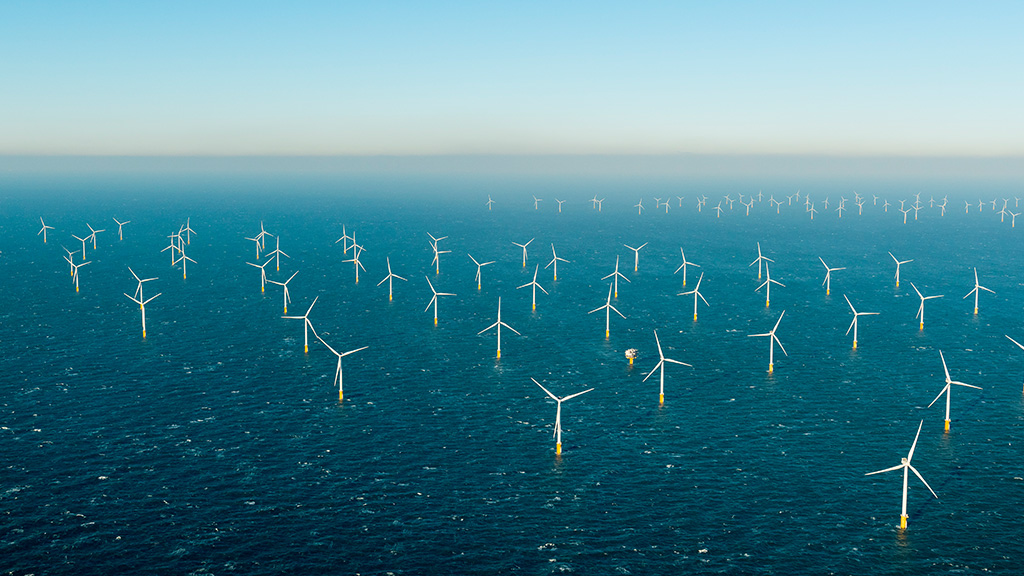Solutions
Double click here to edit new New Header component
-
Solutions
-
SOLUTIONS
Barclays Investment Bank offers advisory, finance and risk management services that connect your ideas to capital and power possibilities.
-
-
Insights
-
INSIGHTS
View thought-leading perspectives from Barclays Investment Bank’s financial experts and Research analysts.
-
-
News and Events
-
News and EventsNEWS AND EVENTS
Get the latest news about Barclays Investment Bank businesses, people and our work in the community, as well as our upcoming events and conferences.
-
- Contact Us
-
Client Login
- Barclays Live
- BARX
Client Login
Parsys 1
Parsys 2
The world is running critically low on the most important natural resource: water. For the global Consumer Staples sector, this scarcity is of particular concern, given its reliance on agricultural commodities and withdrawals from water-risk areas.
A growing imbalance between demand and supply is visible in higher prices; Global Water Intelligence reports that municipal water prices around the world have doubled, on average, over the past decade. This imbalance is also visible in efforts to promote efficiency and conservation. Trading has become common in water-scarce regions, such as Australia, Israel and China, as well as parts of Europe and the US. In times of drought or dry seasons, California water futures (now traded on the CME) can change hands at two to three times the spot price.
But none of this captures the real cost of water. Our team of Research analysts dug deep to estimate the direct and indirect expenses of water-related risks, finding that both companies and investors should pay much more attention to impending shortages, higher costs and tighter regulation. In high consuming sectors such as global consumer staples, water risk should top the list of ESG concerns.
The true cost of water is a lot higher than reported
Companies routinely disclose their utility bills. But it is likely that they are understating the all-in costs of their water consumption. A better metric would equalise tariffs across emerging and developed markets, while factoring in the cost of extreme events such as drought and flooding (and insurance against such risks), reputational damage from water use deemed irresponsible, and the impact of water shortages on future growth. Under this model, our analysts estimate that the true cost of water is three to five times greater than reported by companies.
Source: Barclays Research
The consumer staples industry looks particularly vulnerable in this context. The industry, which includes food, ingredients, agribusiness, meat, beverages, tobacco, and household and personal care, sources the lion’s share of agricultural produce, which accounts for more than two-thirds of global water withdrawals. Our analysts estimate that, on average, 19-27% of the industry’s withdrawals are from areas of high or extremely high water risk, based on data collected by CDP, the international non-profit organisation that helps companies disclose their environmental impact.
Some of the biggest operators, including Colgate, Diageo and Nestlé, have made efforts to quantify the impact of water scarcity on their businesses. But many others have not. If a high true cost of water were applied across the industry, the profitability of some companies could be theoretically wiped out.
Mitigating water risks makes a lot of sense for many industries
Companies are starting to consider rising costs as they try to improve their resiliency to water rationing and measures by governments to promote conservation.
Some big companies have seen success through what they describe as a ‘4R’ approach to water management in their own facilities: reduce, reuse, recycle and reclaim. Others are cutting dependency on pumped water by adopting rainwater harvesting, or returning water to the environment or other users after treatment, as required.
Action to neutralise water risks could be a lot less costly than inaction. In 2020, companies across the food, beverages and agriculture sectors reported to CDP that their maximum potential financial impact of water risks came to $196bn. The same companies evaluated the cost of addressing those risks at just $11bn.
Cost of inaction is 5x higher than the cost of action on water scarcity, on average
Source: Barclays Research, CDP
Note: Graph excludes the manufacturing sector for which costs of action/inaction are $30bn/$1.92tn, a 64x risk-reward ratio.
A combination of regulation and consumer demand should accelerate the pace of change
Water stress has been a part of the public and political agenda for about half a century in most parts of the world. But water is a shared resource, and all parties – policymakers, regulators, citizens, and agricultural and industrial users – will need to take joint responsibility for ensuring a water-secure future.
Efforts include ambitious top-down initiatives such as Saudi Arabia’s Qatrah (Arabic for “droplet”) programme, which aims to reduce per capita water consumption by more than 40% by 2030. In Maharashtra, India, drinks companies pay 800 times the unit costs of households for their water, as the local government tries to penalise the heaviest users. And in Mexicali, Mexico, a partially constructed $1.5bn brewery near the already-stressed Colorado River is being dismantled after more than three-quarters of the local population objected to its development.
Some companies are now discussing such risks more openly. According to our Data Sciences team, mentions of “clean water and sanitation” in corporate transcripts doubled over the last 15 years. In the second quarter of 2020, dialogue related to water was up more than 40% from the end of 2019.
Companies around the world are increasingly talking about water-related risks during earnings calls
Source: Refinitiv, Barclays Research
Our Research team’s analysis suggests that water risk should be the leading ESG issue for consumer staples sector investors, but investors seem to have a greater focus on other ESG-related matters, such as the potential impact of rising carbon costs. A combination of tougher regulation and consumer demand should bring more attention to water, driving investors to ask more questions about the proactive investments companies could make in response to growing water scarcity.
Read the full report
Authorised clients of Barclays Investment Bank can log in to Barclays Live to read the full report.
Parsys 3
Parsys 4
About the analysts
Warren Ackerman is Head of Barclays European Consumer Staples team. He joined Barclays in December 2018 and has more than 20 years of experience in the sector working previously at Société Générale, Evolution (now Investec), Citigroup and Dresdner. He started his career in the investment industry in 1996 at Kleinwort Benson. His focus is primarily on the branded food manufacturing and HPC industries, with companies under coverage including Nestlé, Unilever, and Danone. Warren has been ranked in the top 5 individual analysts across all equity sectors (in the Extel survey) in each of the past three years as well as running the No. 1 global staples team and top 3 ranked teams across Food, Beverages and Home and Personal Care sub sectors (Extel 2018). Warren read Economics and Geography at Exeter University, including modules on investment analysis and portfolio theory.
Andrew Lazar joined Barclays in September 2008 and is a Research analyst covering the packaged food sector. Prior to Barclays, he was at Lehman Brothers since 1995. Andrew was selected as the First Team analyst in Institutional Investor's All-America Research Team survey during 2003-2018, Second Team analyst in 2002, and Runner-up in 2001. Andrew was inducted into Institutional Investor's All-America Research Team Hall of Fame in 2012. Prior to joining Lehman Brothers, Andrew spent three years in strategic planning at Unilever and two years in management consulting with Mars & Co. He earned a B.S. in Finance from The Wharton School of the University of Pennsylvania and M.B.A. from Columbia Business School.
Lauren R. Lieberman joined Barclays in September 2008, and is currently Barclays Equity Research's U.S. Cosmetics, Household & Personal Care & Beverages analyst. Prior to Barclays, she was with Lehman Brothers beginning in 2005. Lauren has ranked in Institutional Investor's All-America Research Team survey since 2006, and has been similarly recognised in the annual Greenwich Associates research survey. Lauren earned a B.A. in Economics and Psychology from Dartmouth College and an M.B.A. from The Wharton School of the University of Pennsylvania.
Benjamin M. Theurer is Head of LatAm Equity Research. He covers multiple sectors across the Americas, including Americas Agribusiness, Latin America Consumer, and Latin America Multi-Industry. Prior to joining Barclays in 2011, Benjamin worked at DWS Investments, the Frankfurt-based asset management branch of Deutsche Bank, as a buy-side analyst and deputy fund manager for Latin American equities. He holds a master's degree in International Economics (Mag.rer.soc.oec) from a joint program at the University of Innsbruck (Austria) and Universidad Complutense de Madrid (Spain).
Laurence Whyatt leads the European Beverages coverage in Equity Research. Laurence joined Barclays in 2018 from Société Générale where he was a member of the #2 ranked Beverages team and the #1 ranked Global Consumer Staples team in the 2018 Extel survey. Prior to moving into Equity Research, Laurence was a Corporate Financier at both UBS and Investec where he covered the UK and European markets in M&A, ECM and Corporate Broking. He graduated from St Edmund Hall, Oxford with a MEng in Materials Science and holds WSET Levels 2 & 3 with Distinction in all modules.
Related content
Research
Creating a more sustainable ocean economy
Our Research analysts examine practices that ensure the wellbeing of our oceans while also supporting the “Blue Economy”, which provides a livelihood for more than three billion people worldwide.
RESEARCH
Emission impossible? Closing in on net zero
Decarbonisation is a major global challenge. Our analysts have identified five key areas of focus over the coming 30 years for delivering the net zero pledge.
THEME
Solving Sustainable
Businesses and markets are seeking new and innovative ways to achieve net zero. We’re providing the latest insights to help solve sustainable, together.
Parsys 5
Parsys 6
Parsys 7
Parsys 8
Parsys 9
Parsys 10
Parsys 11
Parsys 12
Parsys 13
Parsys 14
Parsys 15
Parsys 16
Parsys 17
Parsys 18
Parsys 19
Parsys 20
iParsys for Double Pixel component



